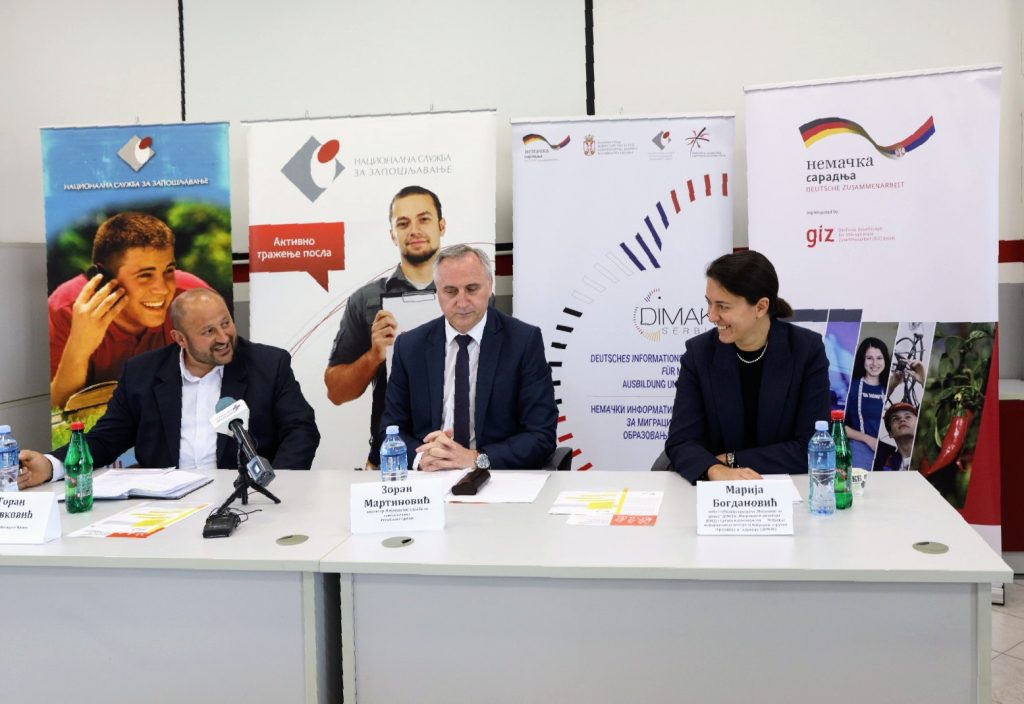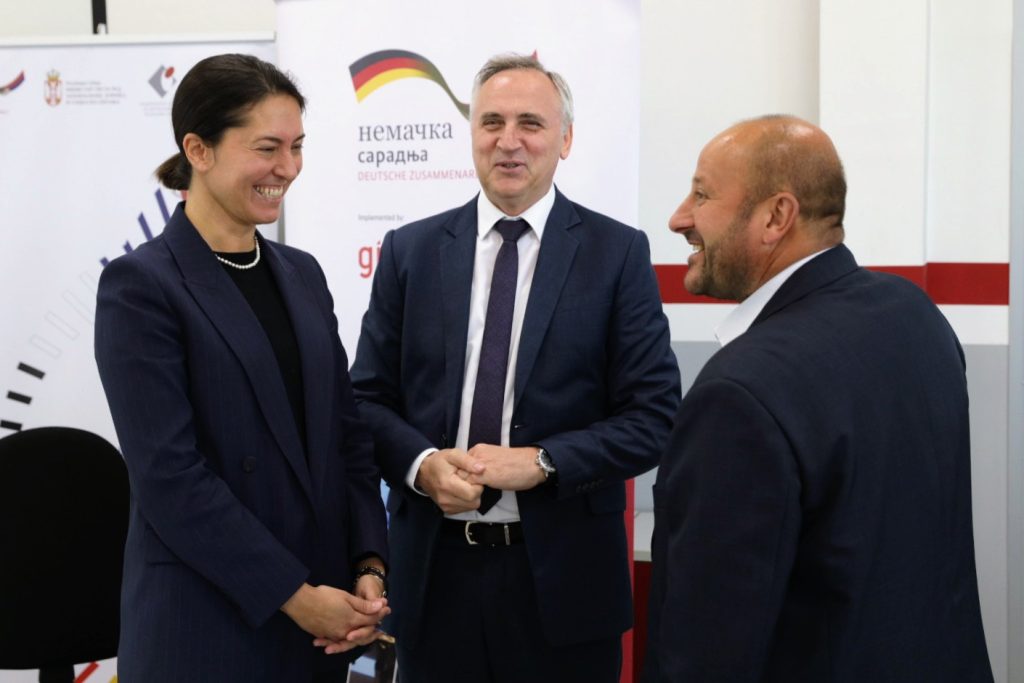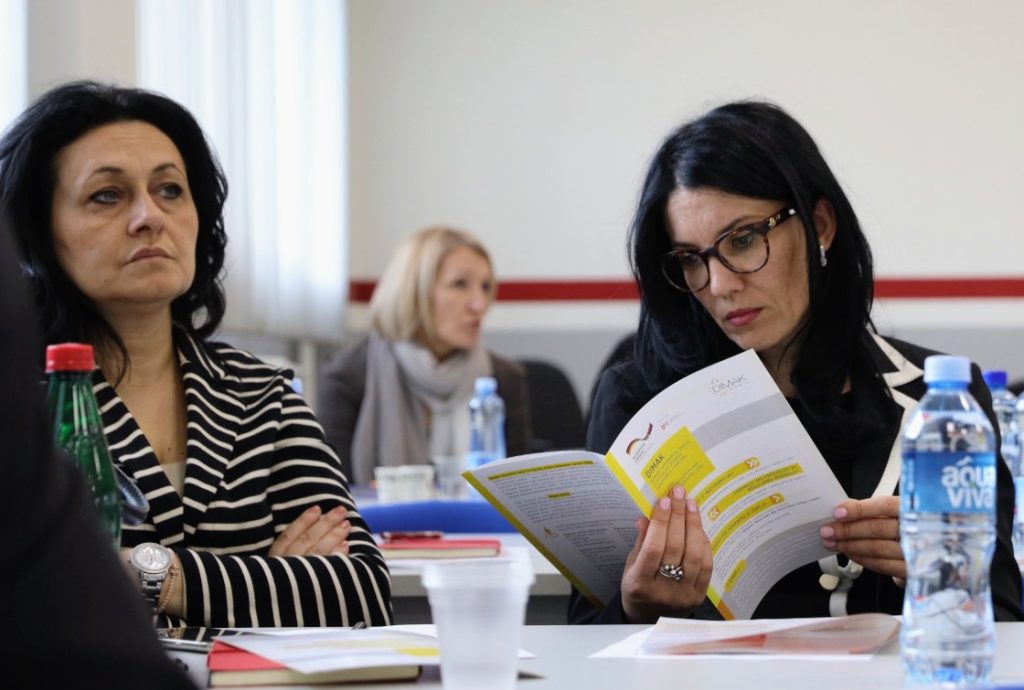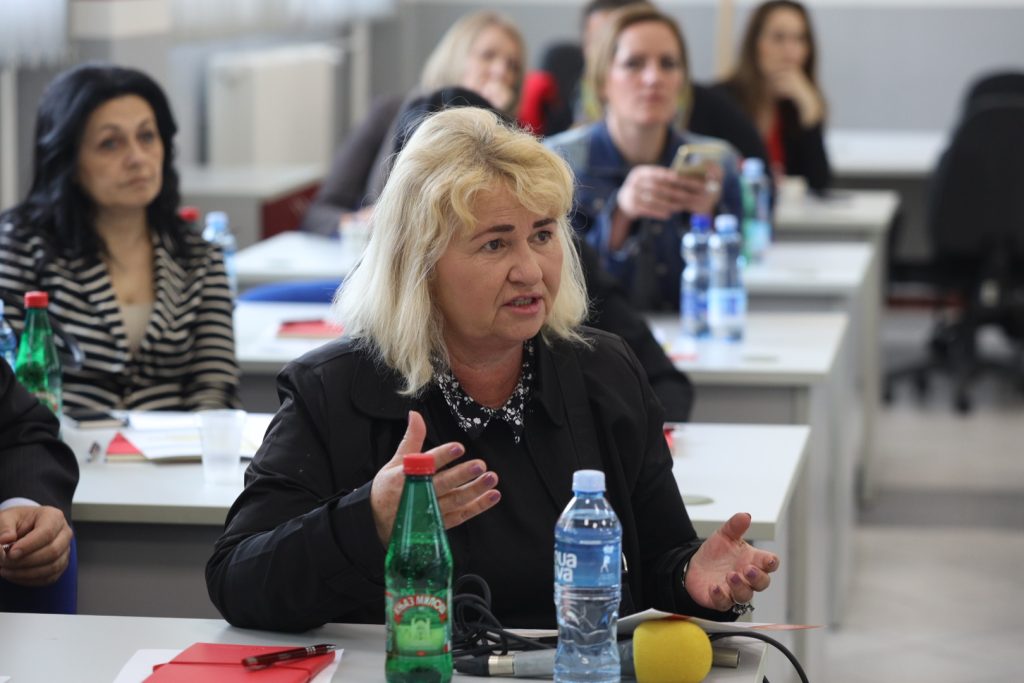The City of Subotica at the very north of Serbia, right under the Hungarian border, and the City of Vranje, at the very south of Serbia are now richer in two newly opened Migration Service Centers. The MSC in Serbia are operating within the National Employment Service, one of the key implementation partners of the Global Programs “Migration for Development” and “Migration & Diaspora” implemented in Serbia by the GIZ.
The new centers were inaugurated by Mr. Zoran Martinović, Director of the NES, and Ms. Marija Bogdanović, global programs leader and head of the German Information Center for Migration, Vocational Education and Career (DIMAK), together with the representatives of the local units.
Migration Service Centers represent an important element of the National Employment Service where two major topics meet – migration and employment.
“MSC in Vranje is the ninth in a row within the NES branches. Thanks to the support of the GIZ Serbia we managed to significantly strengthen the capacities of the previously opened MSC and to open two new ones in Subotica and Vranje”, said Martinović.
He added that the task of these centers is to inform Serbian citizens returning from abroad about the possibilities for inclusion in the labor market, given that the Serbian employers are in a great demand for new workforce.
“Also, the role of the MSC is to provide adequate information to potential migrants about working conditions in other countries and thus reduce illegal migration. By adopting strategic documents in the field of economic migration, the Government of the Republic of Serbia set clear goals to slow down the outflow of the working population out of Serbia and create favorable conditions for attracting returnees, given the increasing demand of employers that cannot be satisfied by the existing workforce, so they are forced to hire workers from abroad”, Martinović explained.
The MSC counsellors provide, through an individual, tailor-made approach, information and advice to migrants and potential migrants about the possibilities of regular and the risks of irregular migration but also about inclusion in the labor market and the use of all services and measures offered by the NES to create socio-economic conditions for staying in the country.
“The topic of return and reintegration is complex and requires a multi-sectoral approach, i.e., coordination and availability of timely support from various institutions of the system so that the individual can be economically and socially empowered and achieve the necessary living standards,” said Marija Bogdanović from GIZ and added that the NES was recognized as an important partner in providing support to returnees after readmission, with a significant role of MSC in the migration management system.
GIZ, on behalf of the German Federal Ministry for Economic Cooperation and Development, implements the global PME and PMD programs in Serbia together with its partners, the Ministry of Labor, Employment, Veterans and Social Affairs, the National Employment Service and the Commissariat for Refugees and Migration.
The aim of the two programs is to improve living conditions and increase people’s chances of sustainably staying in their country, as well as to strengthen key actors in using to a greater extent the positive effects of regular migration and diaspora engagement for their socio-economic development.






